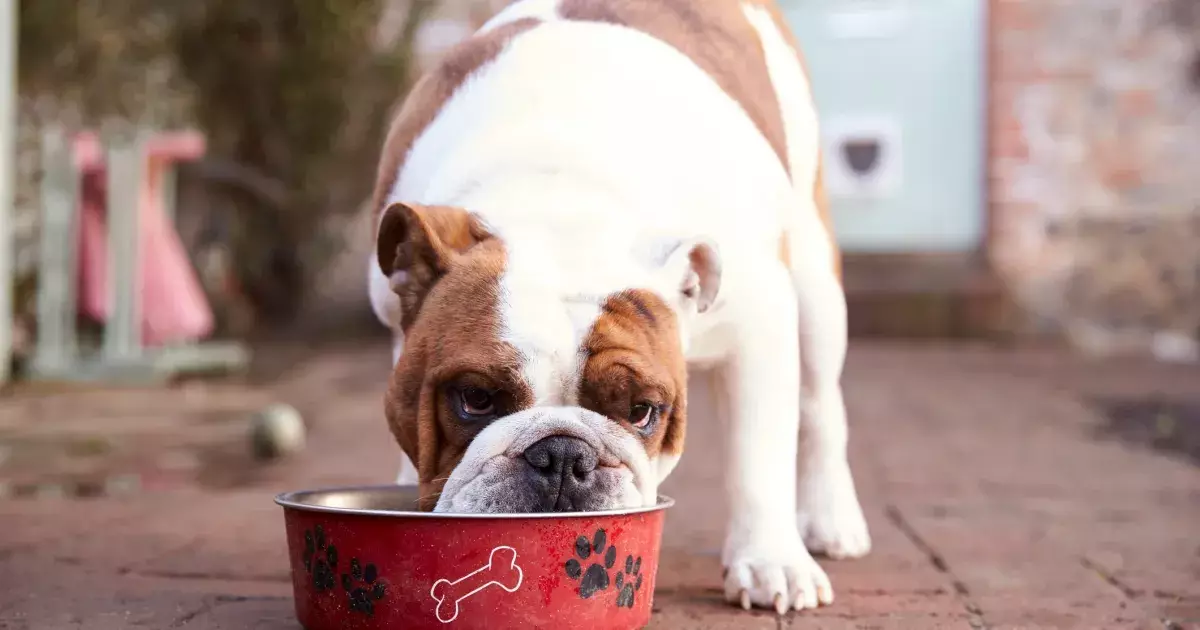Having a dog brings immense joy and companionship, but with that love comes responsibility—particularly regarding your pet’s health. One of the most pressing concerns for dog owners is obesity. Though it may seem harmless to give your dog extra treats or food out of affection, this practice can lead to a range of health issues. In this article, we’ll delve into the importance of maintaining a balanced diet for your dog and provide actionable tips to ensure they remain healthy and happy.
Recent statistics reveal an alarming trend in pet health: more than 50% of dogs in the United States are classified as overweight. This statistic mirrors broader societal issues surrounding human obesity. Dr. Ernest Ward, a veterinarian specializing in animal care, emphasizes that the correlation between excess weight and health issues in pets is significant. Just as being overweight can lead to health complications for humans, the same applies to our canine companions.
Living with an overweight pet can drastically shorten their lifespan and predispose them to conditions such as heart disease, diabetes, and arthritis. The uncomfortable truth is that pet owners may inadvertently contribute to this problem by misinterpreting affection as the provision of food. It’s essential for pet owners to recognize that their dogs crave interaction and love more than extra treats.
The reasons behind pet obesity are varied and complex. The fundamental issue often lies in the behavioral patterns of pet owners who equate food with affection. This behavioral response can create a cycle where dogs are overfed and, in turn, become accustomed to receiving treats as a form of love. Dr. Ward points out that this is a learned behavior—both for pets and humans alike.
To tackle this issue, we must shift our thinking from a rewards-based treat system to alternative expressions of affection. Consider engaging your dog in activities that promote physical movement and mental stimulation—such as walks, playtime with toys, or even simple acts of physical affection like petting.
Starting your dog on a suitable diet early in their life is beneficial, but it’s never too late to adjust their eating habits. If you are the proud owner of a puppy, you have a unique opportunity to infuse healthy practices into their lifestyle right from the start. Dr. Ward suggests that you should consistently evaluate the food you provide—reading labels to understand calorie counts and nutritional value is imperative.
In addition, consider replacing classic treats with healthier options. Instead of dog biscuits laden with calories, raw vegetables like baby carrots and broccoli can be fantastic, nutrient-rich alternatives that satisfy your dog’s craving while keeping their weight in check.
For those who have already allowed their dogs to gain excess weight, reconditioning will require patience and commitment. This often involves ensuring that mealtime routines are structured—providing food at specific times rather than allowing constant access to a food bowl encourages your dog to develop a healthy attitude towards food.
Exercise goes hand in hand with dietary changes in your quest to maintain your dog’s appropriate weight. Many owners mistakenly believe that simply letting their dogs roam in the backyard will suffice for their physical activity needs. However, dogs are social creatures and thrive on interaction—regular walks or play sessions are essential to their well-being.
Engaging in daily walking routines not only helps your dog burn calories but also strengthens the bond between you and your pet. A brisk walk can be an enjoyable routine that keeps both of you physically active. Incorporating game sessions with toys can also provide both exercise and mental stimulation.
Before embarking on any new dietary or exercise routine for your dog, consulting your veterinarian is crucial. Your vet can evaluate your dog’s overall health, rule out any underlying medical issues, and tailor a dietary plan that suits their specific needs. They can also recommend suitable supplements, like omega-3 fatty acids, which promote overall health and well-being.
The journey toward maintaining a healthy weight for your dog requires commitment, education, and lifestyle changes. By understanding the risks of obesity, adjusting feeding habits, and incorporating regular exercise, you can ensure that your furry friend lives a long, happy, and healthy life. Remember, your dog is not just looking to you for food; they are looking for love, care, and companionship—qualities that should always extend beyond the confines of a food bowl.

